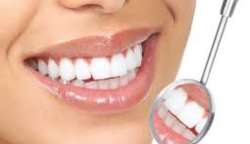Dental care helps drug abuse patients in recovery
Dental care helps drug abuse patients in recovery: Oral health care not only helps drug abuse patients recover physically but also improves their quality of life, suggests a new study.

Dental care helps drug abuse patients in recovery: Oral health care not only helps drug abuse patients recover physically but also improves their quality of life, suggests a new study.
The study, published in the Journal of the American Dental Association, showed the drug abuse patients who consulted dental professionals for major oral health problems stayed in treatment almost two times longer and had recorded 80 per cent increase in chances of completing the drug abuse treatment.
"There is a powerful synergy between oral health care and substance use disorder," said Glen Hanson, the study's first author and Professor at the University of Utah Health.
"Those who received comprehensive dental care had a better quality of life, measured by substantial improvements in employment and drug abstinence as well as a dramatic decrease in homelessness," Hanson said.
For the study, the researchers joined two substance use clinics -- Odyssey House and First Step House -- to develop the FLOSS (Facilitating a Lifetime of Oral Health Sustainability for Substance Use Disorder Patients and Families) programme.
The researchers compared the responses by FLOSS participants to controls.
First Step House allowed patients to self-select dental care (158 males in dental and 862 males in control), whereas Odyssey House identified participants with major oral health problems and then randomly assigned them to treatment or control (70 males and 58 females in dental and 97 males and 45 females in control).
The study's findings showed after the complete dental care, the FLOSS participants, either self-selected or randomly selected, were more likely to continue and complete their substance use treatment programme.
The researchers said providing complete oral care as part of treating the patient is critical to reviving self-esteem and is an essential first step on the long path to drug abuse recovery.
"The experience is life-changing not only for patients but also dental service providers like dental students who now know how their work can dramatically alter their patients' lives," noted Hanson.
"I think if we do the same for patients experiencing other chronic health problems, like diabetes, we could see similar positive results for treatment outcomes," he said.